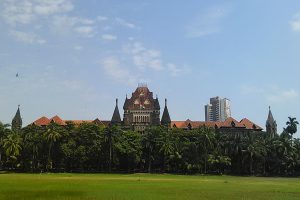Bombay High Court: Manish Pitale, J., while upholding the decision of Sessions Court discussed more on the concept of ‘continuing offence’ under the Domestic Violence Act, 2005.
Background
Petitioner had filed an application under the provisions of The Protection of Women of Domestic Violence Act, 2005 for various reliefs. The said application was partly allowed by the Judicial Magistrate directing Omprakash (husband) to pay an amount of maintenance and rent to his wife, whereas the return of Stridhan and household articles was rejected.
With the above decision, both the wife and husband were aggrieved and hence filed appeals before the Sessions Court. Sessions Court had partly allowed the appeal of the wife by enhancing the monthly maintenance and additionally the husband was directed to pay an amount of Rs 50,000 to his wife towards compensation.
Appeal filed by the husband was dismissed.
Aggrieved by the judgment, present petitions were filed in which the Court issued notices.
Analysis, Law and Decision
Limitation
In the instant matter, Court stated that it is concerned with the complaint filed by the wife under Section 12 and other provisions of the D.V. Act.
The wife claimed that she was harassed and abused and that she also suffered economic abuse at the hands of the husband and his relatives. Further, she added that she was subjected to “domestic violence” as defined under Section 3 of the D.V. Act, hence sought redressal for such abuse and claimed return of articles gifted to her by her parents and other relatives.
“…concept of continuing cause of action and continuing offence needs to be appreciated from the point of view of the aggrieved person i.e. wife.”
In the case of Krishna Bhattacharjee v. Sarathi Choudhury, (2016) 2 SCC 705, Supreme Court held that the concept of continuing offence gets attracted from the date of deprivation of Stridhan and that therefore, an application in that context would have to be entertained and it cannot be thrown out on the ground of limitation
Continuing Offences
Court opined that, the definition of ‘domestic violence’ under Section 3 of the D.V. Act shows that depriving an aggrieved person of not only Stridhan but also shared household, maintenance, alienation from assets, banks lockers etc., prevention from entering place of employment of the aggrieved person, would all be covered, under the concept of continuing offences.
Hence, merely because the wife filed a complaint after one year, the said complaint cannot be barred by limitation.
Enhancement of Maintenance
High Court held that considering the salary of the husband, he directed to pay an amount of Rs 6,000 and the same cannot be said to be unreasonable.
Physical Abuse
Husband contended that since the wife did not place on record any material to show any physical abuse or proof of having filed any police complaint, she did not deserve to be paid any compensation.
To the above, Court reasoned that in cases of domestic violence, it is often found that the aggrieved person does not immediately rush to the police when inflicted with physical, mental, and physiological and economic abuse.
Adding to the above, Bench stated that even if such persons suffer injuries, they will not necessarily keep medical records of the same and it cannot be said that only because no medical documents were produced, the wife in the present matter was not entitled to compensation.
In view of the above discussions, the Session Court’s decision was upheld. [Aruna v. Omprakash, Criminal Writ Petition No. 372 of 2019, decided on 27-7-2021]
Advocates before the Court:
Shri. C. A. Joshi, Advocate for Petitioner
Shri. A. S. Joshi, Advocate for Respondent.

